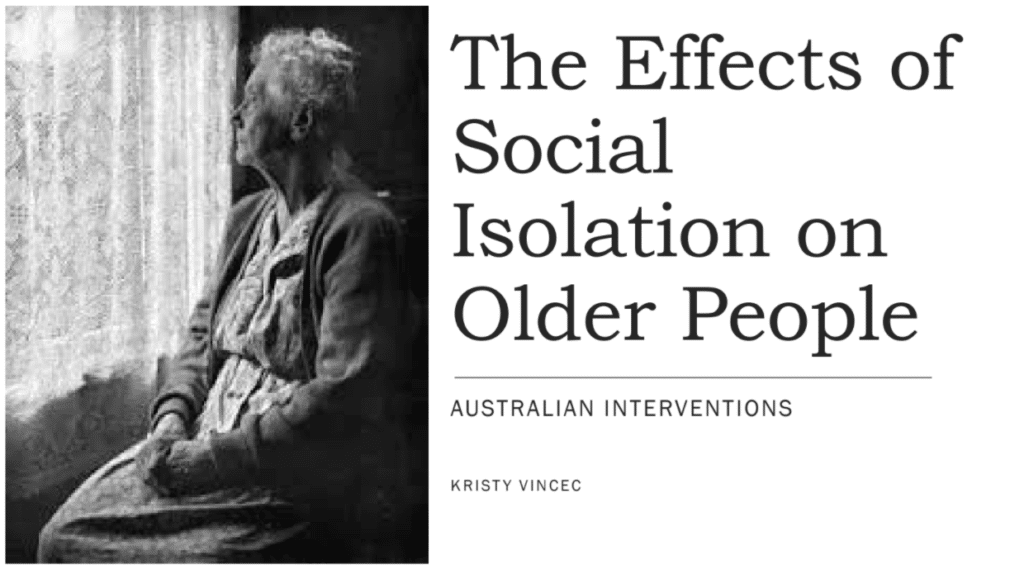SilVR Adventures recently attended the Australian Institute for Intergenerational Practice, or AIIP’s annual colloquium. Amongst many great speakers who talked about the benefits of mixing generations, Kristy Vincec from Griffith University delivered a fantastic presentation on the growing prevalence of social isolation among older adults.
As passionate advocates for reducing isolation and loneliness, we wanted to highlight some of the most important takeaways from Kristy’s presentation.
You can find out more here.
The issue with social isolation
We all go through social isolation when we don’t get regular contact with our friends and family. And the problem then grows when we can’t participate in social groups and activities. Research shows there are correlations between social isolation and symptoms of declining health and wellness. These symptoms include poorer mental health, cognitive decline and sedentary behaviour. Basically, when older adults feel isolated and lonely, their quality of life suffers.
Loneliness among older adults
As we all know, the more we age, the harder it is to get around. This makes it much harder to go out to see friends or participate in social groups. Older adults also tend to live more independently and which can reduce opportunities for small social interactions throughout the day.
Also, these are people who face the loss of loved ones around them due to their stage of life which can cause feelings of loneliness and despair.
Why would this matter?
According to the AIHW, one in six Australians is aged 65 and above. This is a large population of people who could be facing social isolation and loneliness, especially during the Covid-19 pandemic.
Furthermore, Australia’s older generation is expected to double by 2057, which means that it’s never been more important to tackle social isolation among older adults. This is crucial for the health, well being and life expectancy of our loved ones.
Where do we go from here?
We can start with creating a more socially inclusive atmosphere amongst older adults. Due to their physical mobility constraints, catering to these social needs in their current environment would be beneficial. There are many innovative avenues to create a social atmosphere among older adults without the physical strain.
At SilVR Adventures reducing loneliness in aged care is at the core of what we do. And we’re proud to have taken thousands of older adults on shared experiences around the world. It’s these shared experiences that 85% of our customers have said help to significantly drive social engagements.
Contact us today to arrange a demo, and learn more about virtual reality can help combat loneliness for your elders.
Don’t forget to checkout our podcast on intergenerational practices with Anna Donaldson, the CEO and Founder of Lively, a not for profit aged care provider that partners young unemployed people with older adults who need care.




